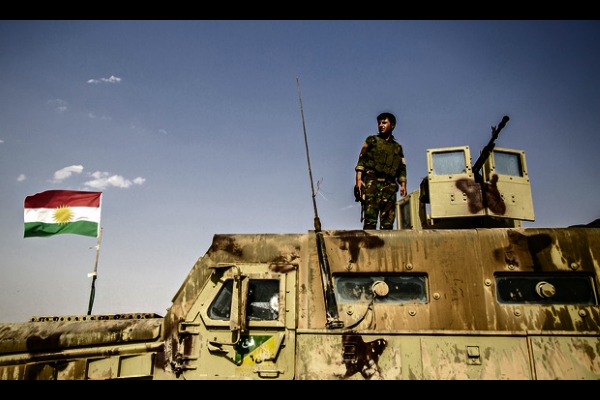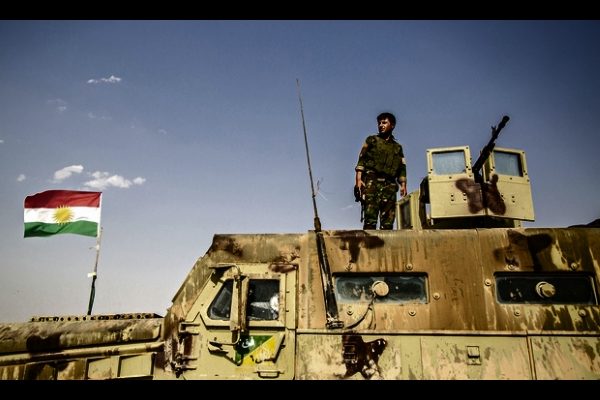

By: Middle East Eye
Source: Middle East Eye
Turkish officials offered strong warnings against a planned Iraqi Kurd referendum on Saturday just before its parliament approved extending a mandate that authorises Turkish troop deployments to Iraq and Syria.
“If the referendum is not cancelled there will be serious consequences. Erbil must immediately refrain from this terrible mistake which will trigger new crises in the region,” Turkish President Recep Tayyip Erdogan’s spokesman wrote on Twitter, referring to the capital of the Kurdistan Region in Iraq.
Asked if Turkey would consider a cross-border operation in response to referendum, Prime Minister Binali Yildrim said to Reuters: “Naturally, it is a question of timing as to when security, economic and security options are implemented. Developing conditions will determine that.”
Yildirim was speaking before an extraordinary session of the Turkish parliament on Saturday which later that day approved the extension of an existing mandate to use Turkish troops in Syria and Iraq against ISIS and other groups deemed hostile by Ankara.
Turkey said on Friday the vote in Iraq’s semi-autonomous Kurdish region would threaten security and force Ankara to slap sanctions on a neighbour and trading partner, although it did not specify what measures it might take.
The country has the largest Kurdish population in the region and is already battling a Kurdish insurgency. It has warned that any break-up of neighbouring Iraq or Syria could lead to a global conflict.
Last Monday, the Turkish army launched a highly visible military drill near the Habur border crossing to Iraq. Military sources said the drill was due to last until 26 September, a day after the planned referendum.
‘The referendum is still happening’
Hoshiyar Zebari, a top adviser to Kurdish leader Massoud Barzani, told Reuters on Saturday that a delegation has been dispatched to Baghdad to conduct a dialogue with the Iraqi government.
“The delegation will discuss the referendum but the referendum is still happening,” he said. “We said we would talk to Baghdad before, during and after the referendum.”
The federal government in Baghdad has said it is opposed to the referendum, which it has called unconstitutional. The United States and Iran and have also voiced opposition to the referendum saying it could destabilise the region and harm the fight against IS.
In a speech to parliament, Turkish Defence Minister Nurettin Canikli voiced concern about the referendum’s impact on the region’s ethnic and sectarian relationships, saying it could trigger an “uncontrollable fire”.
“Pulling out just a brick from a structure based on very sensitive and fragile balances will sow the seeds for new hatred, enmity and clashes,” he said.
A particular area of concern is the multi-ethnic city of Kirkuk, which is outside the recognised Kurdish region and is home to Kurds, Turkmen, Arabs and Assyrian Christians. Turkey has long seen itself as protector of the Turkmen minority.
Kirkuk, at the centre of lucrative oilfields, is dominated by Kurds though it lies outside the recognised boundaries of the autonomous Kurdish region and is claimed by Baghdad.
Barzani vowed to press on with the referendum on Friday, telling supporters at a football stadium in Erbil that the referendum was “no longer in his hands”.
But behind the scenes negotiations are still taking place aimed at persuading him to postpone the poll, according to officials close to the discussions.
Turkey has for years been northern Iraq’s main link to the outside world. It has built strong trade ties with the semi-autonomous region, which exports hundreds of thousands of barrels of oil per day through Turkey to international markets.



